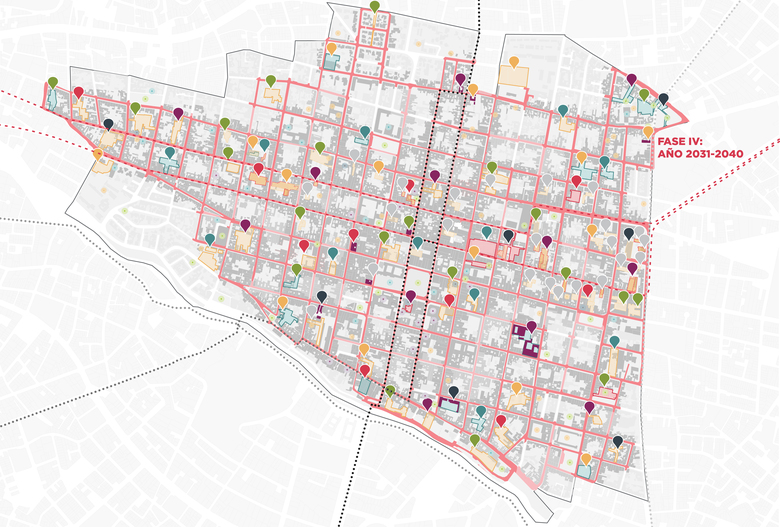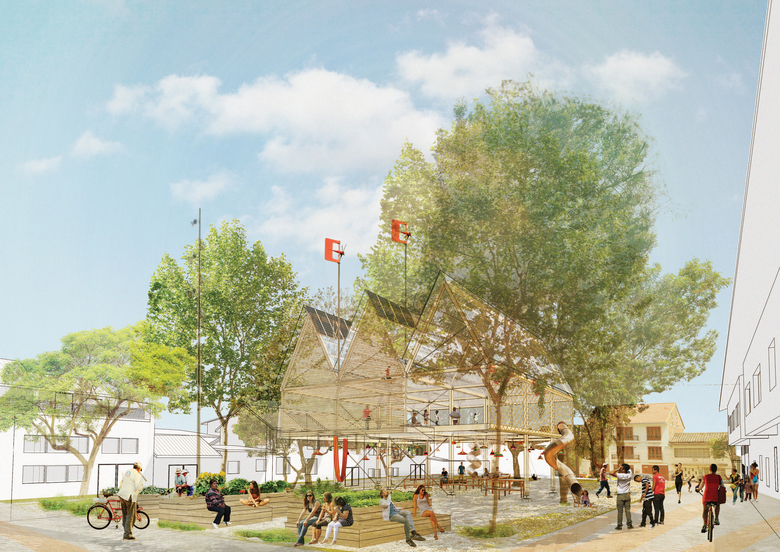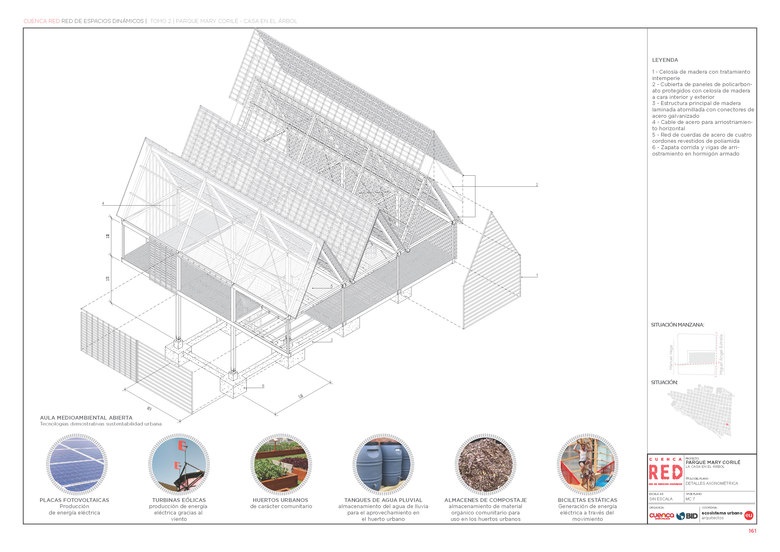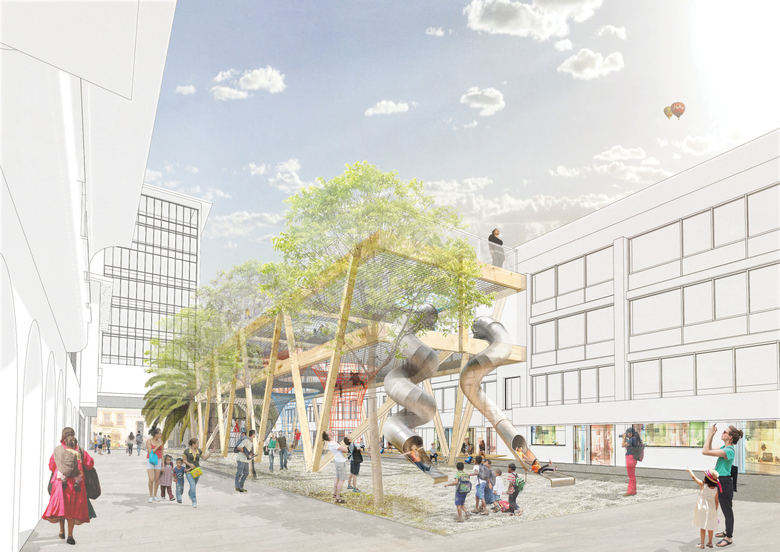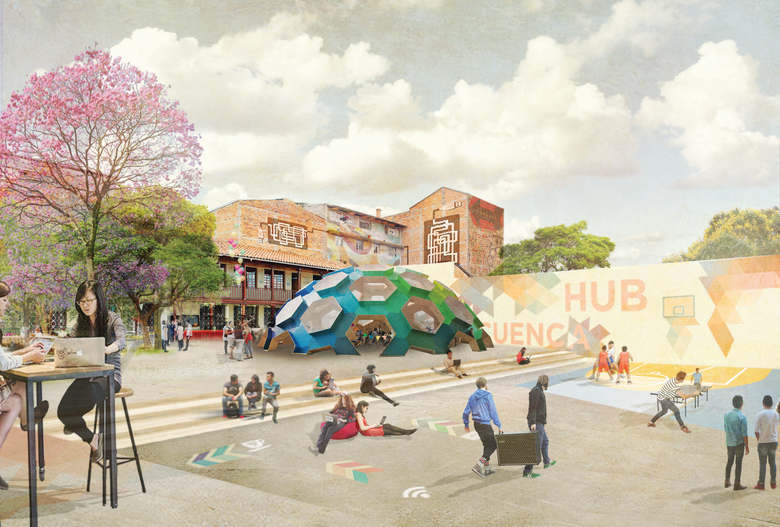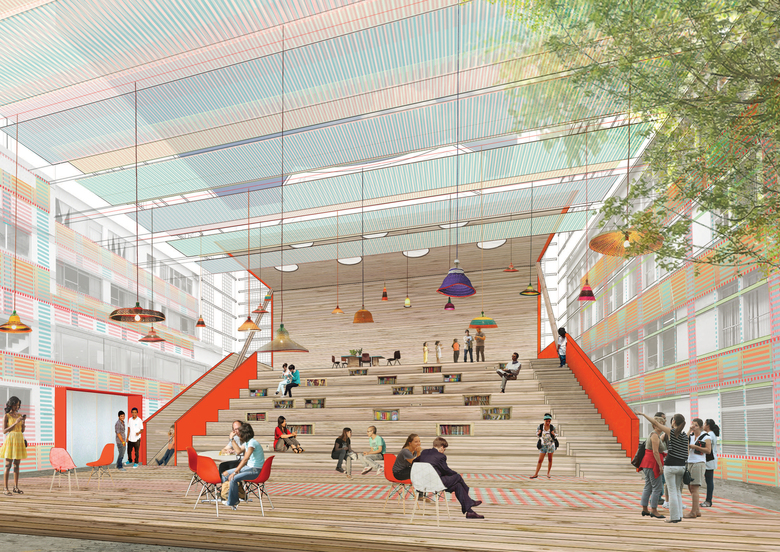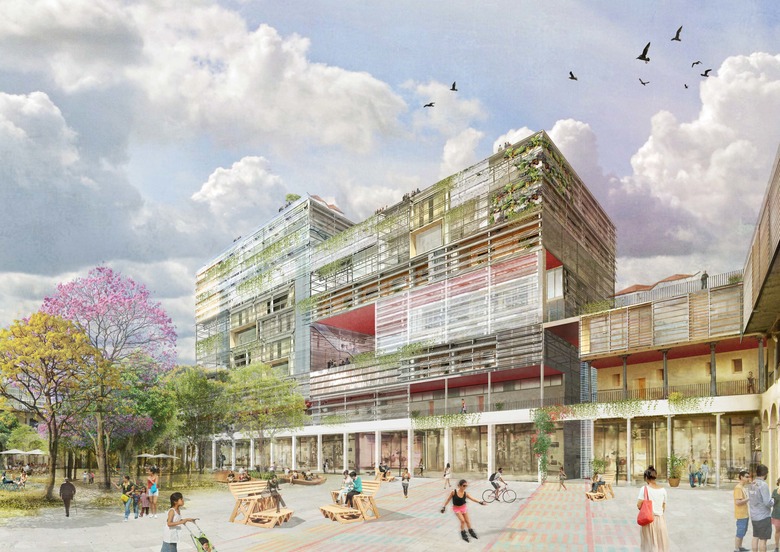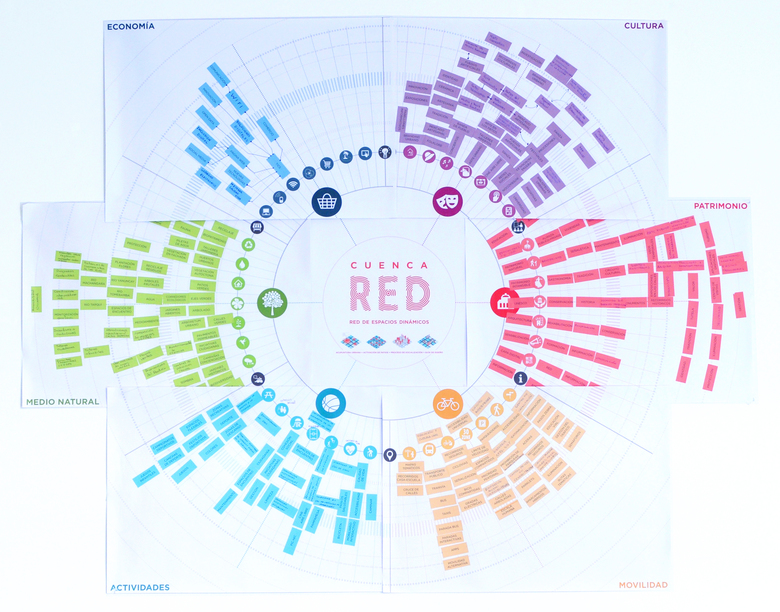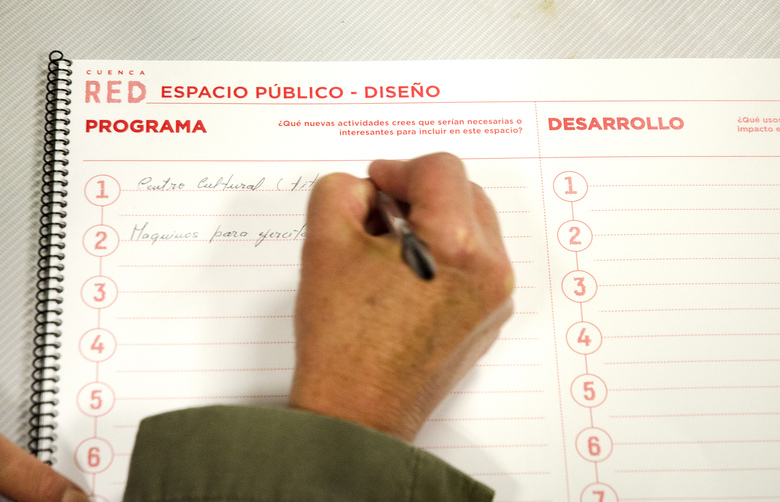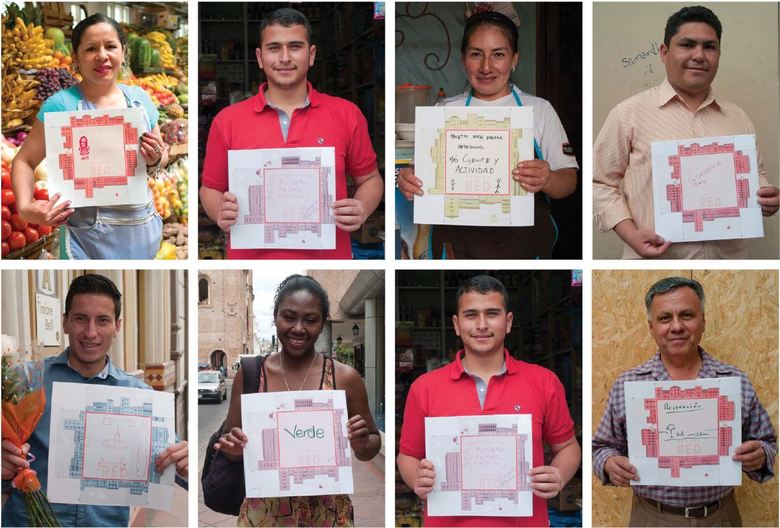Cuenca Red
Cuenca, Ecuador
- Architects
- Ecosistema Urbano Arquitectos
- Year
- 2016
- Client
- Inter American Development Bank
The historical center of Cuenca, included on UNESCO’s World Heritage List in 1990, is now facing an important transformation of its mobility system shifting towards a new model of city, more active, livable, healthy, inclusive and dynamic. In this favorable framework, CUENCA RED aims to identify the great and underestimated opportunities that reside in the public space of this unique city to create a vibrant network (RED in Spanish) of reactivated spots, improving the urban experience and aspiring to a more livable and livelier historical center.
The project is structured in 2 main parts: a participatory process, and the urban reactivation strategy -deeply influenced by the participative process- that consists in long term actions and short-term projects for 6 emblematic spaces of the historical center.
+ Participatory process
Through the participatory process we encourage a bidirectional communication between institutions and citizens, allowing an urban transformation made with the necessary support and involvement of people. The process includes several target groups: university students, children and youngsters, institutions, active agents and citizens. They are engaged through different activities and formats rising urban awareness in many different ways.
The activities of the participatory process, as well as the urban reactivation strategies, are developed around 6 thematic axes, representing the new uses to be given to the identified opportunity areas: activity, mobility, heritage, culture, economy and environment. All these topics gravitate around the concept of public space, the transversal issue that influence and affect the different spheres of urban life.
+ Web Platform
Besides onsite activities, the participatory process takes place on the web platform cuenca.red, where everybody can share their ideas georeferenciated for a better historical center.
+ Urban Strategies
The city morphology constitutes an incredible opportunity for the implementation of several programs and activities in its blocks. The lack of large squares and vast empty spaces is compensated by a high number of extremely interesting courtyards, many of them currently used as parking lots. With the implementation of the new mobility plan that priorizes pedestrians and soft mobility, many new opportunities arise for Cuenca’s public space.
The long-term strategy aims to provide new uses and programs to these reconquered spaces, multiplying the environmental, economic and cultural offer of the city.
The short-term strategy interests 6 emblematic spaces that are considered as “high priority” interventions; taking account of the inputs received throughout the participative process, a strong character related with use and program is defined for each space. The result consists in 6 projects: The City Lounge, The Social Network, City School, The Active Center, The Tree House, Cuenca Hub.
Related Projects
Magazine
-
Winners of the 5th Simon Architecture Prize
3 days ago
-
2024, The Year in …
5 days ago
-
Raising the (White) Bar
5 days ago
-
Architects Building Laws
1 week ago
